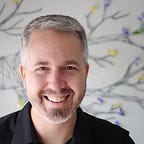Living the Half-Life (RFR #18)
There is something undeniably romantic about having a second place and that romanticism is not lost on us. We dreamt about having a place on Orcas Island and in purchasing the Yurt, we got to see it happen. We’re fortunate and have no regrets.
But, in owning the Yurt for over a year and splitting our time between Orcas Island and Seattle, some of the shine has worn. I suppose it was inevitable that the notion of an island getaway would come face-to-face with the realities of owning two homes in two locations. In short, there’s pleasure, but also an unexpected bit of pain unrelated to home maintenance or yards to mow.
Unlike the second place I knew growing up, our time on Orcas Island tends to be longer term. Because we can work from the Yurt, we can stay for weeks at a time. We essentially split our time between Orcas and Seattle in big chunks, which I realize sounds like a dream. But the choice to live in this way has had an impact.
I think about it like this: by splitting our time between Orcas and Seattle, we’ve gone from having one full life to having two half-lives. We are not fully available and invested in either place.
This is most apparent in our social relationships. Going back-and-forth means that our friends can never really count on us being around. They may consider asking us to get dinner, but assume we’re at the other place. And there is a 50% chance they’ll be right. That’s not a great way to carry on a relationship or feel that you’re part of a community. This is something we feel more and more.
The same is true for our own plans. We don’t know, more than a month ahead, where we’ll be. We can technically commit to being in Seattle or Orcas if we need to be, but there’s always a chance that a far-off commitment on the calendar will create a ripple effect with unknown consequences. Should a dinner date with friends in a month be the deciding factor regarding where we’re living at the time? This question causes us to hesitate in making plans too far into the future.
Of course, having a second place comes with more practical concerns. We’ve been able to outfit the Yurt with an impressive assortment of second hand resources and now have two of many things. A phrase that we’ve come to use to describe this situation is “Twice the sheets, half the sleeps”. Put that way, it seems so wasteful. But that’s the reality of having two half-lives.
At a smaller scale, there always seems to be something missing that’s either at the other place or packed in some unknown box. In Seattle, I discovered that we had two staplers and no staples. We had a drill, but no Phillips head drill bit. A brown belt, but no black one. Small things matter, too.
We’ve found that we can pretend we have one life by hauling a number of things with us back and forth every trip. An example is our coffee maker and grinder. It’s expensive and makes really good coffee. We don’t need two, so we bring them with us every time we commute. To ensure that the travel doesn’t limit my productivity, I always travel with the tools of my work: my computer, drawing tablet and pen, a microphone for voice-overs, and cords aplenty. Sachi’s work is all computer related.
Over time we had to come to terms with an odd question: where is home? With everything being split, we learned to think about it in terms of things that we had chosen not to duplicate. For a while, our printer was in Seattle and it was a part of running our business. Did that make it our primary home? Is home where the printer is?
For a while, home was related to cooking equipment. Sachi kept the stand mixer in Seattle and the food processor at Orcas, so we could try to strike a balance between the two. What we eventually discovered is that it all comes down to knives. Home truly is where the good knives are.
It’s not that these are real problems, but they do matter. Living two half-lives doesn’t feel sustainable over the long term. It feels like we’d only ever be half-friends to people who matter and half-citizens to places we love. It’s the middle ground that feels so disorienting. We are never fully present or fully absent. It’s like living in a constant state of change where it’s difficult to establish a rhythm.
I know having a second place is a privilege and even if it comes with living a half-life, traveling with a coffee maker and not having the right color belt, we are lucky to have a chance to give these experiences a spin. It’s within this experience that we’re learning not only what’s possible, but what matters to us and how we might make changes in the future.
📫 Get Ready for Rain essays in email. Sign up here.
